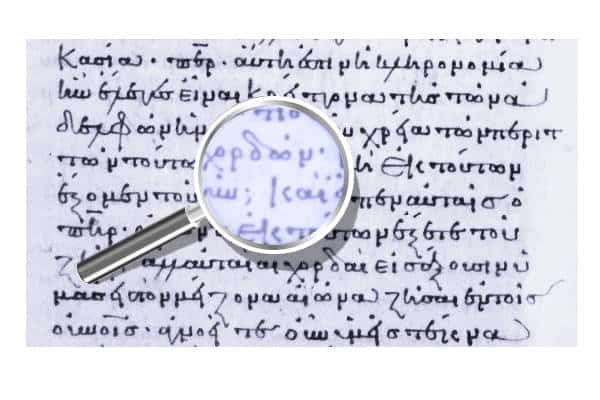The biggest lesson I learned studying the Christian doctrine of tongues in a 90 second video.
translation
Ambrosiaster on the Tongues of Corinth
The Ambrosiaster Latin text with its beginnings in the fourth-century gives insight and much-needed clues on the mystery tongues of Corinth.
The Ambrosiaster author(s) believed Paul was describing the adoption of a synagogue rite. It consequently led to the misuse of Hebrew and Aramaic to an audience that did not understand these languages. There was no awareness of ancient Pythian prophetesses, ecstasy, Montanists, or glossolalia. Nor was there an association with speaking in tongues as a sign of a true believer.
Origen on Speaking and Interpreting
A journey that delves deeply into Greek grammar, etymology, and the politics behind the translation of Origen’s comments of I Corinthians 14:13–14.
This article covers the great third century Church Father, theologian and writer, Origen, regarding his commentary on the above passage in Greek. The coverage here is technical and produces by a step-by-step process in producing an English version. By doing so, the system reveals problems that plague the translation of ancient Christian texts.
An earlier church etymology of χάρισμα
An etymological exploration of the word χάρισμα from select writings of the Church Fathers.
Χάρισμα has a much wider semantic range than most realize and assists in a better understanding of St. Paul’s usage.
By going through a select set of writers from the third to fourth centuries, Athanasius*1, Eusebius, and Gregory of Nazianzus, a clearer picture is developing on how the ancients understood the word.
In a traditional English translation, one is forced to use gift in every instance of χάρισμα. In my translations below, I am breaking this tradition because the Church Fathers indicate a wider semantic range. Really, I am not sure if there is a one word equivalent in English for this word. The sense from these authors is that χάρισμα means this: the giving of your talents and service as an expression of thanks for what He has done in your life and reflecting God’s image in all that you do. I think endowment, expression or manifestation may be better English choices depending on the circumstance. These words do not completely match the Greek either and appear too simplistic, but comes closer in many instances.
The Testament of Job and Angelic tongues

An analysis of the Testament of Job, its controversial state on speaking in angelic tongues, and its place in the christian doctrine of tongues.
The Testament of Job’s narration of Job’s three daughters speaking in the dialect of angels piques curiosity, especially those who hold an interest in the christian doctrine of tongues. Were they speaking a supernatural language of angels that purportedly the early Christian church of Corinth produced and later the Montanists? Alternatively, were they speaking in highly exalted poetic language as the Delphic prophetesses practiced?
Technical Notes on Chrysostom's Pentecost Text
Notes on the translation of John Chyrsostom’s “On the Holy Pentecost” Homily 1:4(b) to 5.
Rufinus' Grand Omission
Rufinus’ Latin translation mistake on Nazianzus’ Greek text on Pentecost.
Technical Notes on the Psellos Translation
Technical notes by the English translator on this important text on the tongues of Pentecost
Gregory Nazianzus on the Doctrine of Tongues Intro
Gregory Nazianzus on the dogma of tongues, his contribution, and how it has evolved.
Cyril of Alexandria on Tongues: Acts
A medieval commentary of the Book of Acts from a fragment attributed to the fifth century Church Father, Cyril of Alexandria.
The following is an English translation of a text relating to tongues and Pentecost. It comes from a supplement to *Cyril’s* works as found in Migne Patrologia Graeca.

